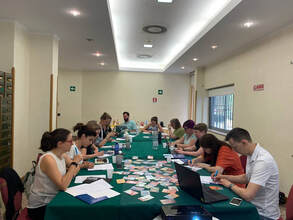 Being a teacher does not only mean transmitting students knowledge and skills, but also guiding students in defining achievable goals and in creating an action plan to achieve them. The role of the teacher, therefore, is not only to transfer knowledge, but also to ask the "right" questions to help students discovering their own value. What role do emotional intelligence and coaching skills play in being a teacher? Trying to answer this question was the goal of the new edition of the course “Emotional intelligence and coaching inside the school and educational context” that took place in Palermo from 22/05/2022 to 28/05/2022. The participants came from all over Europe: Eva from the University of Copenhagen, in Denmark; Rūdis from the Riga English grammar school, in Latvia; Josipa from the Elementary School Benkovac, in Croatia; Kamila from Zakladni skola Usti nad Labem, in Czech Republic; Maria José and Margarida from the Agrupamento de Escolas Gabriel Pereira, in Portugal; Cristina and Blanca from the IES Politécnico de Vigo, in Spain; two participants coming from two different institutes in Sweden, Fia from the Internationella Engelska Skolan Sundsvall and Christoffer from the Virginska gymnasiet i Örebro; three participants from different institutes in Belgium, Julieand Marcelle from the Zentrum für Förderpädagogik, and Kathleen from the CVO VOLT (Flanders). First of all, during this course we discussed about Emotional Intelligence, which is the capability to recognize not only our own feelings but also other people’s emotions, and consequently to be conscious of what happens in our minds and in our surroundings. An emotional-intelligent teacher can identify his/her students’ emotions, in order to create a connection with them and help them to manage their feelings. We deepened the concept of being a leader, discovering that there is not the perfect leadership style: in order to be a “good” leader it is important to choose the leading strategy that best adapts to the specific situation. 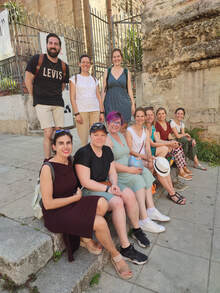 Moreover, we discussed about another coaching skill that is the ability to manage conflict. Conflicts are not necessarily a something bad; conflicts could be an opportunity to build a new situation that is better than the first one. A teacher, as a coach, must help their students to communicate responsibly, finding a collaborative solution to the problem, without suggesting it, but guiding them in the decision making and in the evaluation of their behavior. Another topic we proposed during this course was the power of questions in guiding our students reflection and development, focusing on 4 key elements: Goal (What is my goal?), Reality (Where am I now?), Options (What can I do?) and Will (What is my future plan?). Finally, we analyzed the “Solution Focused Brief Coaching” model, a “coaching” model that, instead of focusing on the problem and on limits, enhances the solution and the resources that are available. In conclusion, during this week the participant did not miss all the opportunities to network and build strong and meaningful relationship. We are looking forward to welcoming you again!
Discover more about this course at: https://www.erasmustrainingcourses.com/coaching.html |
Welcome to the ELA Blog. Here you will find articles and photos of our courses and have a look at the topics addressed during the week in Bologna, Palermo and Tenerife. You will also have the chance to take a peek at our projects and check out what we have been up to.
Archives
July 2024
Categories |
-
Course catalogue
- 2023-2024 course catalogue
- Soft Skills >
- ICT and New Technologies >
- Inclusion and Diversity >
-
Innovative Teaching Methods
>
- Innovative teaching methods discovery
- Non-formal education teaching methods
- Dual education and work-based learning
- Teaching leadership and entrepreneurship
- Project based learning
- Game based learning and gamification
- Green skills
- Outdoor education
- Outdoor education trekking edition
- Promoting creativity and critical thinking
- Languages and EU projects >
- Preschool >
- Erasmus Plus KA1
- What we do
- About us
- Locations
- Blog
- Contact us
 English
English български
български Čeština
Čeština Español
Español Français
Français ελληνικά
ελληνικά Italiano
Italiano Polski
Polski Português
Português Română
Română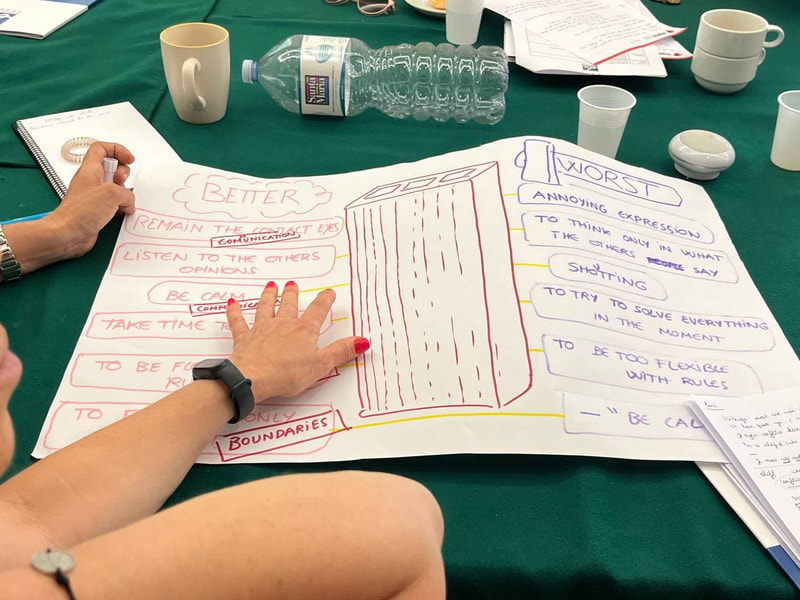
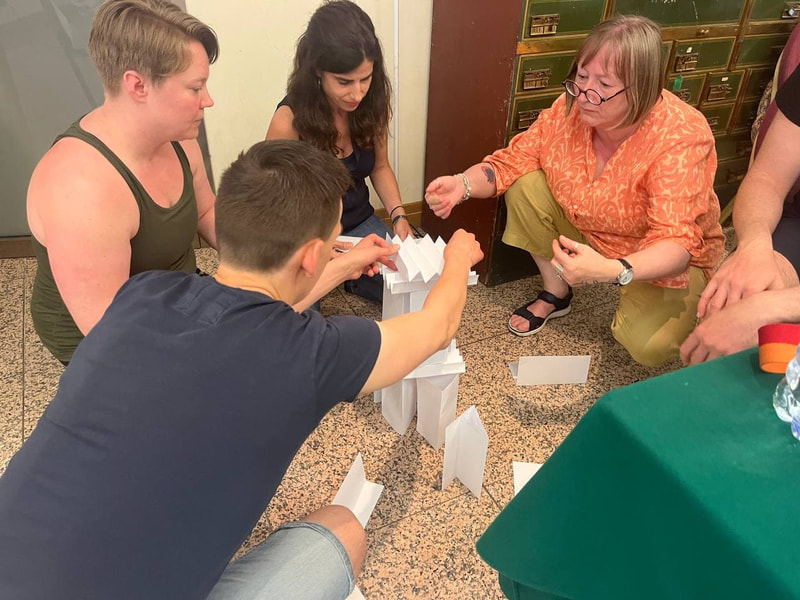
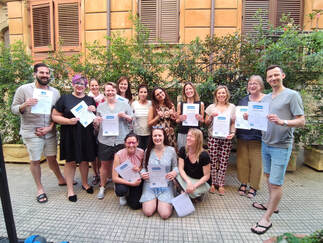
 RSS Feed
RSS Feed









